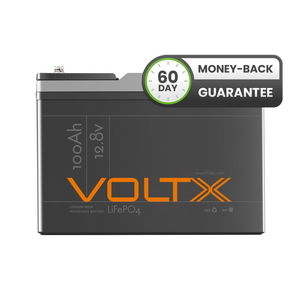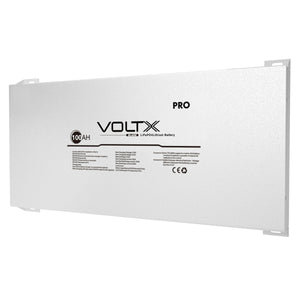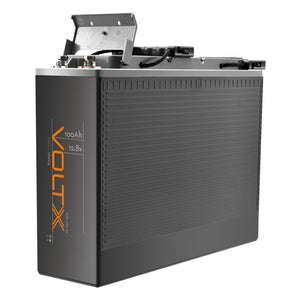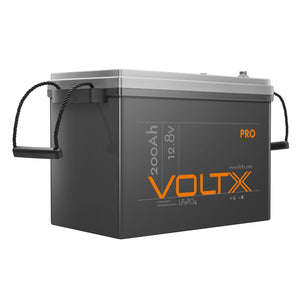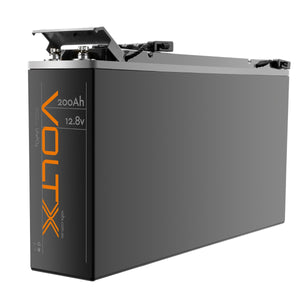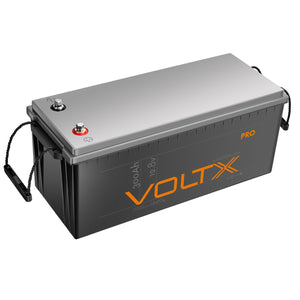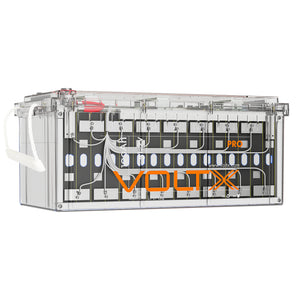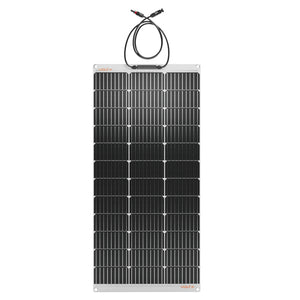There are many questions on whether a deep-cycle battery would work well in a solar panel setup. The short answer: yes. Using a deep-cycle battery as a solar battery is perfect because of its ability to provide you with reliable power at an 80% discharge rate. Whether you're using your battery bank in the evening to reduce costs, during a power outage, or in your RV, having one that can power your essential appliances for a longer period is always a win.
On top of this, deep-cycle batteries are also famous for their long lifespan so despite them being on the pricier side, they actually make good long-term investments especially if you're planning to use them on a regular basis.
Deep-cycle solar batteries also come in various types. They can be the traditional flooded lead-acid batteries which are the most common and cheapest among all batteries. Although fairly reliable, these require the most maintenance even when storing plus, they have the shortest lifespan compared to other battery types too. Their sealed lead-acid counterparts such as AGM deep-cycle batteries may be able to store up to 10% more energy, but they have a similar problem with service life as well. Lithium-ion batteries, on the other hand, pose a risk of explosion, just like the previous batteries. If you're keen on going for a lithium battery, choose a lithium iron phosphate battery or LiFePO4 instead. This lithium deep-cycle battery is not just advantageous in terms of overall quality but is safer as well with its incombustible nature. LiFePO4 batteries are backed with an intelligent battery management system (BMS) too, which automatically protects your batteries from common issues and ensures maximum cell performance too.
What Is the Difference Between a Solar Battery and a Car Battery?
Despite being both rechargeable batteries, solar battery storage differs from regular car batteries in many ways. Car batteries are designed to supply concentrated bursts of power meant to start engines and are not suitable for long periods of use. Solar batteries, on the other hand, are usually used to power electronic equipment and gadgets either in households or campsites. These batteries ideally should last for up to a day or more depending on their capacity, which is why deep-cycle batteries are your best option here. Most of the time, a caravan battery setup uses a 12V deep-cycle battery paired with a good set of fixed solar panels on the roof or portable solar panels for those who prefer to "chase the sun." Households, which are likely to have more appliances to run, sometimes go for higher-voltage power packs such as 24V batteries. If you're planning to set up an entire solar system, there are available solar panel and battery kits to lessen the hassle of buying separate units, as well as solar panel kits with included solar panel accessories for easier installation.
What Should I Look For When Buying a Solar Deep-Cycle Battery?
Buying deep-cycle batteries for solar takes a lot of consideration in order to maximise your battery's power. Solar battery prices can be quite high and if you're choosing yours for the first time, here are some of the factors you need to keep an eye on to ensure that you get good value for your money.
Cost: While it can be tempting to buy cheap deep-cycle batteries, make sure you don't forget to check their overall quality. Some stores offer discount batteries that are reliable enough, while some will supply you with inferior power packs that might even pose risks to user safety as well. Additionally, getting a cheap yet low-quality solar power battery will require you to buy a new one within a few months too, which will cost you more in the long run.
Capacity: Your battery's capacity is measured in amp-hours, so see to it that you have a good estimate of your power requirements before heading off to the battery shop. You can do this by listing the starting and running watts of your appliances including how long you're planning to use them and comparing it against your battery.
Voltage: It's crucial that your battery's voltage is compatible with your solar panels and the rest of the system. In most outdoor settings, a 12V battery would be enough but for large off-grid houses, it's better to go for 48V batteries.
Life-cycle: This pertains to the number of charge and discharge cycles your battery can hold before it falls below the rated capacity. Ideally, it's best to choose something with above 2,000 life cycles like LiFePO4 batteries for more years of usage.
More from Outbax
A deep-cycle battery for solar is indeed one of the best choices an outdoor lover or homeowner can go for. For avid campers, it allows you to have peace of mind even on off-grid camping trips knowing that you will never run out of power throughout your entire stay. If you're convinced about buying the best deep cycle battery for solar storage, you might want to take a look at Outbax. Our collection of lithium deep-cycle batteries such as slimline deep-cycle batteries are built with the outdoors in mind. They make not just great deep-cycle solar batteries but also excellent deep-cycle marine batteries and deep-cycle caravan batteries. You can also get your solar panels here. We have different types available including flexible solar panels and solar mats. When it comes to affordable camping gear, Outbax has you covered, so make sure to browse through our items for your next adventure.
